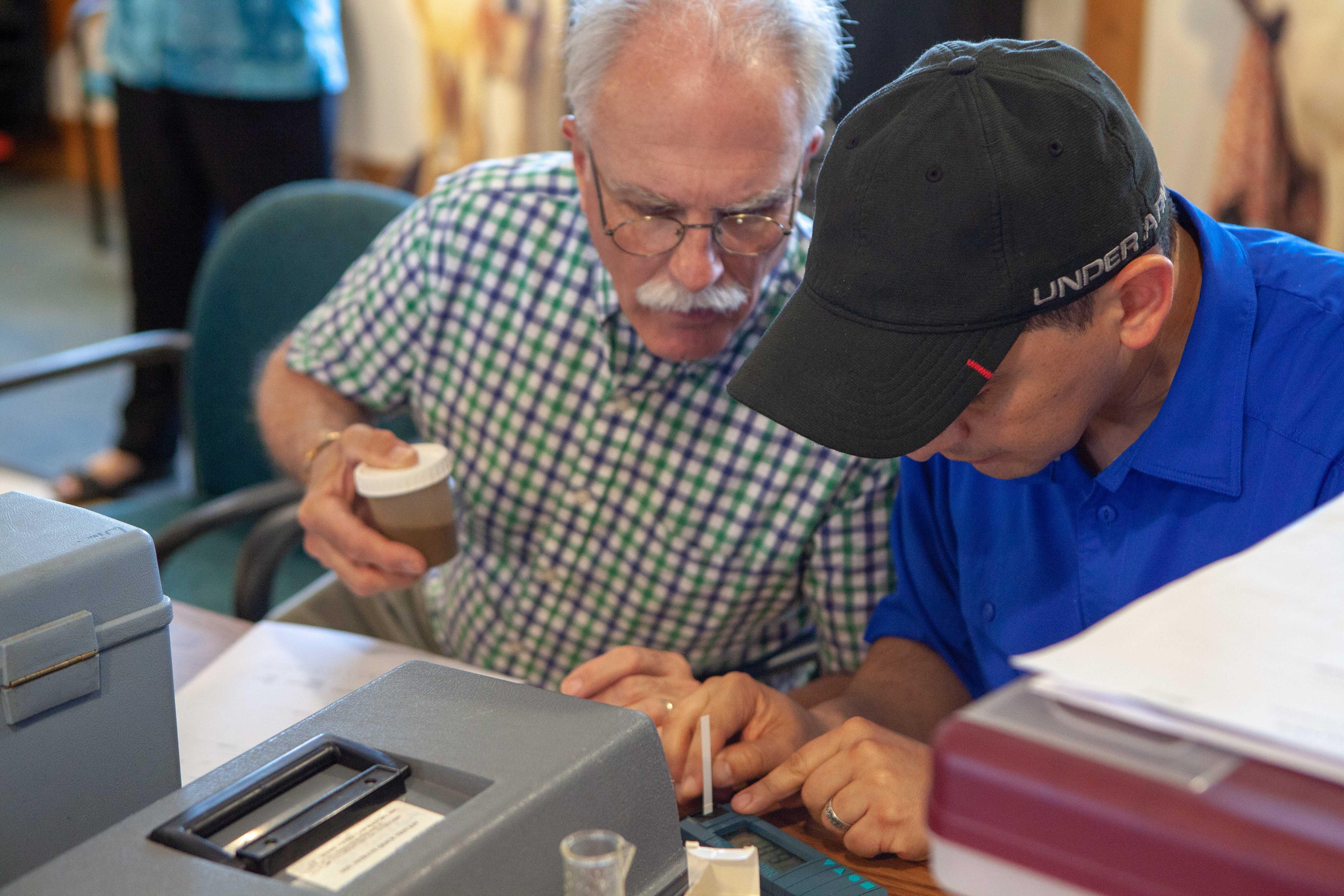The University of Maryland Extension's Agricultural Nutrient Management Program, which is a component of the University of Maryland's College of Agriculture and Natural Resources, focuses on balancing nutrient applications with crop requirements to optimize crop production while reducing pollution to the Chesapeake Bay.
Agricultural Nutrient Management Training and Events
The University of Maryland Extension Nutrient Management Program helps farmers comply with the Water Quality Act to protect the Chesapeake Bay by promoting effective and environmentally sound nutrient application. Find the next event or training near you.
Quick Links
Program Updates and Announcements
Here, you will find the latest updates, announcements, and insights related to our program. We strive to keep our stakeholders informed and engaged with all developments.
- 1/22/2024 - Agricultural Nutrient Management Program (ANMP) January Updates
- 12/4/2023 - Agricultural Nutrient Management Program (ANMP) Fall Updates
- 10/12/2023- New Updates to the Nutrient Management Program
- 7/17/2023- MDA Announces Reinstatement of Funding to UMD for Plan-writing services with a new strategy moving forward. Stay tuned for further updates.
- Statements from the initial 6/1/23 announcement:
- Read Dean Beyrouty and Dr. Jinhee Kim’s Letter to the Community
- Read the full press release from the MDA outlining their new changes
Contact your local Extension office for more information
The Agricultural Nutrient Management Program is funded by the Maryland Department of Agriculture
 English
English العربية
العربية Български
Български 简体中文
简体中文 繁體中文
繁體中文 Hrvatski
Hrvatski Čeština
Čeština Dansk
Dansk Nederlands
Nederlands Suomi
Suomi Français
Français Deutsch
Deutsch Ελληνικά
Ελληνικά हिन्दी
हिन्दी Italiano
Italiano 日本語
日本語 한국어
한국어 Norsk bokmål
Norsk bokmål Polski
Polski Português
Português Română
Română Русский
Русский Español
Español Svenska
Svenska Català
Català Filipino
Filipino עִבְרִית
עִבְרִית Bahasa Indonesia
Bahasa Indonesia Latviešu valoda
Latviešu valoda Lietuvių kalba
Lietuvių kalba Српски језик
Српски језик Slovenčina
Slovenčina Slovenščina
Slovenščina Українська
Українська Tiếng Việt
Tiếng Việt Shqip
Shqip Eesti
Eesti Galego
Galego Magyar
Magyar Maltese
Maltese ไทย
ไทย Türkçe
Türkçe فارسی
فارسی Afrikaans
Afrikaans Bahasa Melayu
Bahasa Melayu Kiswahili
Kiswahili Gaeilge
Gaeilge Cymraeg
Cymraeg Беларуская мова
Беларуская мова Íslenska
Íslenska Македонски јазик
Македонски јазик יידיש
יידיש Հայերեն
Հայերեն Azərbaycan dili
Azərbaycan dili Euskara
Euskara ქართული
ქართული Kreyol ayisyen
Kreyol ayisyen اردو
اردو বাংলা
বাংলা Bosanski
Bosanski Cebuano
Cebuano Esperanto
Esperanto ગુજરાતી
ગુજરાતી Harshen Hausa
Harshen Hausa Hmong
Hmong Igbo
Igbo Basa Jawa
Basa Jawa ಕನ್ನಡ
ಕನ್ನಡ ភាសាខ្មែរ
ភាសាខ្មែរ ພາສາລາວ
ພາສາລາວ Latin
Latin Te Reo Māori
Te Reo Māori मराठी
मराठी Монгол
Монгол नेपाली
नेपाली ਪੰਜਾਬੀ
ਪੰਜਾਬੀ Afsoomaali
Afsoomaali தமிழ்
தமிழ் తెలుగు
తెలుగు Yorùbá
Yorùbá Zulu
Zulu ဗမာစာ
ဗမာစာ Chichewa
Chichewa Қазақ тілі
Қазақ тілі Malagasy
Malagasy മലയാളം
മലയാളം සිංහල
සිංහල Sesotho
Sesotho Basa Sunda
Basa Sunda Тоҷикӣ
Тоҷикӣ O‘zbekcha
O‘zbekcha አማርኛ
አማርኛ Corsu
Corsu Ōlelo Hawaiʻi
Ōlelo Hawaiʻi كوردی
كوردی Кыргызча
Кыргызча Lëtzebuergesch
Lëtzebuergesch پښتو
پښتو Samoan
Samoan Gàidhlig
Gàidhlig Shona
Shona سنڌي
سنڌي Frysk
Frysk isiXhosa
isiXhosa






